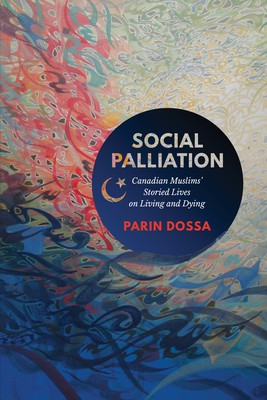
- We will send in 10–14 business days.
- Author: Parin Dossa
- Publisher: University of Toronto Press
- ISBN-10: 1487525303
- ISBN-13: 9781487525309
- Format: 15.2 x 22.6 x 1.8 cm, softcover
- Language: English
- SAVE -10% with code: EXTRA
Reviews
Description
Social Palliation is a pioneering study on living and dying as articulated by first-generation Iranian and Ismaili Muslim communities in Canada. Using ethnographic narratives, Parin Dossa makes a case for a paradigm shift from palliative care to social palliation.
Experiences of displacement and resettlement reveal that life and death must be understood as an integrated unit if we are to appreciate what it is like to be awakened to our human existence. In the wake of structural exclusion and systemic suffering, social palliation brings to light displaced persons' endeavours to restore the integrity of life and death. Dossa highlights the point that death conjoined with life is embedded within the socio-cultural and spiritual experience. Here, a caring society is not perceived in fragments, as is the case with traditional institutional care or care offered during end-of-life. Rather, Dossa draws attention to an organic form of caring, illustrated through the trajectories of storied lives. In exemplifying more humane aspects of social palliation, this book foregrounds sacred traditions to illustrate their potential to evoke deep-level conversations across socio-political boundaries on what it is like to live and die in the contemporary world.
EXTRA 10 % discount with code: EXTRA
The promotion ends in 16d.23:16:17
The discount code is valid when purchasing from 10 €. Discounts do not stack.
- Author: Parin Dossa
- Publisher: University of Toronto Press
- ISBN-10: 1487525303
- ISBN-13: 9781487525309
- Format: 15.2 x 22.6 x 1.8 cm, softcover
- Language: English English
Social Palliation is a pioneering study on living and dying as articulated by first-generation Iranian and Ismaili Muslim communities in Canada. Using ethnographic narratives, Parin Dossa makes a case for a paradigm shift from palliative care to social palliation.
Experiences of displacement and resettlement reveal that life and death must be understood as an integrated unit if we are to appreciate what it is like to be awakened to our human existence. In the wake of structural exclusion and systemic suffering, social palliation brings to light displaced persons' endeavours to restore the integrity of life and death. Dossa highlights the point that death conjoined with life is embedded within the socio-cultural and spiritual experience. Here, a caring society is not perceived in fragments, as is the case with traditional institutional care or care offered during end-of-life. Rather, Dossa draws attention to an organic form of caring, illustrated through the trajectories of storied lives. In exemplifying more humane aspects of social palliation, this book foregrounds sacred traditions to illustrate their potential to evoke deep-level conversations across socio-political boundaries on what it is like to live and die in the contemporary world.


Reviews